Jump To Comment
About the history of Fokker F27 friendship & Fairchild F-27&FH-227
Probably the closest to being the fabled DC-3 replacement, the Fokker F-27 Friendship, including the Fairchild built F-27 and FH-227, was built in greater numbers than any other western turboprop airliner. The Fokker F-27 began life as a 1950 design study known as the P275, a 32 seater powered by two RollsRoyce Dart turboprops. With the aid of Dutch government funding the P275 evolved into the F-27, which first flew on November 24 1955. This original prototype was powered by Dart 507s and would have seated 28, by the time the second prototype had flown (in January 1957) the fuselage length grew to allow seating for 32. By this stage Fokker had signed an agreement that would see Fairchild build Friendships in the USA. The first aircraft to enter service was in fact a Fairchild built F-27, in September 1958. Fairchild F-27s differed from the initial Fokker F-27 Mk 100s in having basic seating for 40, a lengthened nose capable of housing a weather radar, and additional fuel capacity. Developments included the Mk 200/F-27A with more powerful engines, Mk 300/F-27B and primarily military Mk 400 Combi versions, the Mk 500 with a 1.50m (4ft 11in) fuselage stretch taking seating to 52, and Mk 600 quick change freight/pax aircraft. Fairchild independently developed the stretched FH-227, which appeared almost two years earlier than the Mk 500. The FH-227 featured a 1.83m (6ft 0in) stretch over standard length F-27/F-27s, taking standard seating to 52.
(Credit to Airliners.net)
About Balair(1952-1993)
Balair lettering was affixed to the left of the chartered Swissair Jumbo for a day trip by the Board of Directors, shareholders and invited guests. The second Balair was founded in January 1953. The Basel voters voted on the 5th. October 1952 of the founding of a public limited company. Hans Peter Tschudin was elected as the first president. In its first years, Balair focused on flight training and aircraft maintenance as well as handling Swissair aircraft at Basel-Mulhouse Airport. 1957 started the charter business with two Vickers 610 Viking. 1959 Swissair acquired a 40-percent stake in Balair. The fleet was increased by two DC-4s of Swissair. Balair also used Boeing C-97 Stratofreighter for Biafra aid from Joint Church Aid. In the year 1965, aircraft for Swissair were used for the first time on scheduled services to Bern and Basel after Swissair had taken its DC-3 out of service; A Fokker F-27 rented by Swissair was used on the Basel-Geneva-Bern-Zurich routes as well as from Basel to Frankfurt and London. At that time, the fleet consisted of three DC-6B, two Fokkers and the DC-4 freighter used for Swissair on the route to London. In the year 1972 Swissair acquired the majority stake and 1979 the fleet consisted of a DC-6, a DC-9, two DC-8 and a newly added DC-10 (registration HB-IHK). Winter destinations included Mombasa, Rio de Janeiro, Colombo (Sri Lanka), New York and Los Angeles. Very often, the Balair aircraft were in crisis areas on behalf of the ICRC. A Fokker F-27 was operated on behalf of the United Nations. With the DC-6 HB-IBS, the Balair had the last four-engine propliner in Switzerland. The aircraft was sold to Canada and flies there as a fire extinguisher. However, by concentrating on long-haul, the parent company Swissair could not benefit as desired, for example, the company could not relieve Swissair if necessary due to excessive capacity utilisation of its aircraft. The airline, which was conceived as a small Swissair, did not work efficiently.
About the history of Balair & Swissair Fokker F27 friendship
HB-AAU, landing at Skypark International Airport (IATA: SPK/ICAO: SPKA) on July 17th, 1967 (Photo taken by FarewellSwissair)
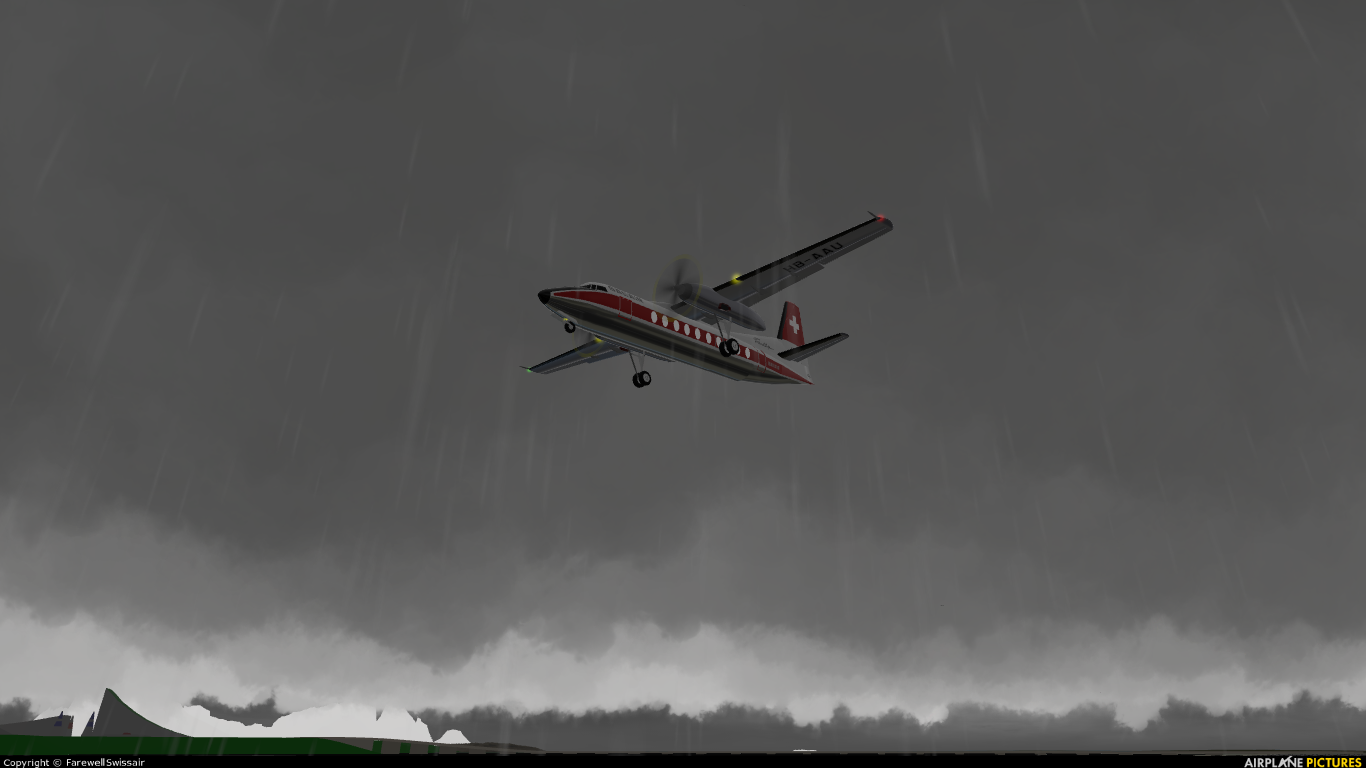
In 1965, Swissair's last Douglas DC3 officially ended its passenger career Swissair urgently needed to find a new aircraft model that could replace the DC-3 in order to operate domestic routes. Subsequently, Swissair found Balair, a chartered airline in which it held 40% equity. At that time, Balair had just purchased a Fokker F27-200, registered as HB-AAU, manufactured in 1962, from WDL Flugdiest (Luftransport Unternanhehmen LTU) in Germany to supplement the capacity shortage caused by the HB-AAI crash at Málaga Airport (AGP/LEMG) on the evening of September 13, 1964.Swissair discovered that the Fokker F27 is exactly the best alternative to the DC-3: while increasing the range by about 500 kilometers, it has huge advantages in economy and fuel consumption compared to the DC-3.Swissair then asked Balair to operate its domestic routes on behalf of itself (mainly Zurich Bern and Zurich Basel), which also transformed Balair from a charter airline to an airline with scheduled flights. Subsequently, to cope with the increasing passenger flow and flights, In 1965, 1967,and 1968, Balair purchased three brand new Fokker F27-400 aircraft with registration number HB-AAV, HB-AAW and HB-AAX from Fokker and these three newly purchased Fokker F27s are mainly used in the operation of domestic routes, while HB-AAU is used in charter services, but occasionally also operates domestic routes. Due to Balair's frequent representation of the Red Cross in dangerous areas, one Fokker F27 in the fleet represents the United Nations. It was not until 1971 that due to Swissair's inability to generate significant profits from this service, the service was immediately discontinued. The remaining aircraft returned to Balair's charter service, and soon after, Balair replaced all of its Fokker F27s. All friendships are sold to other airlines.
Controls
AG-1:Beacon Lights
AG2:Landing Lights
AG4:Cabin Lights
AG8:Engines
VTOL(Down):Flaps
Trim:Trim
Posters
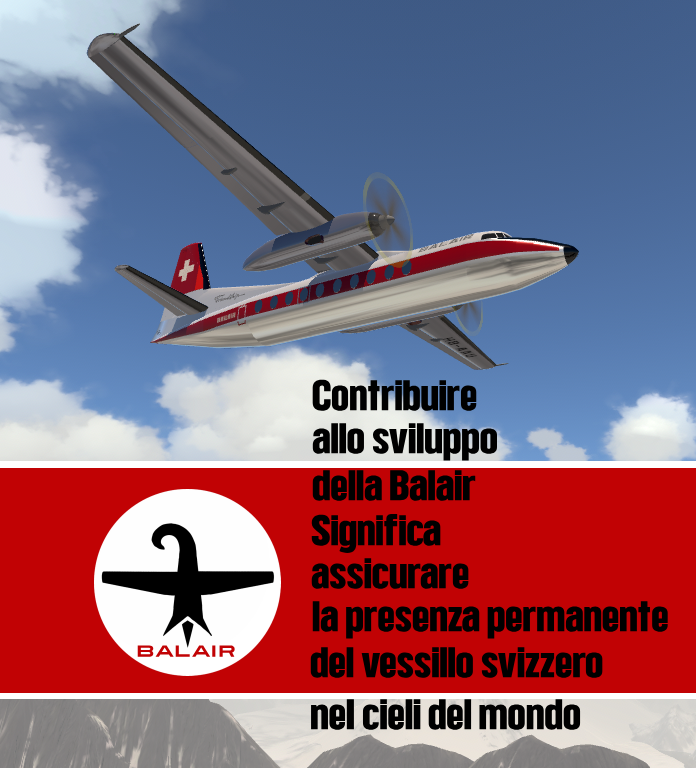
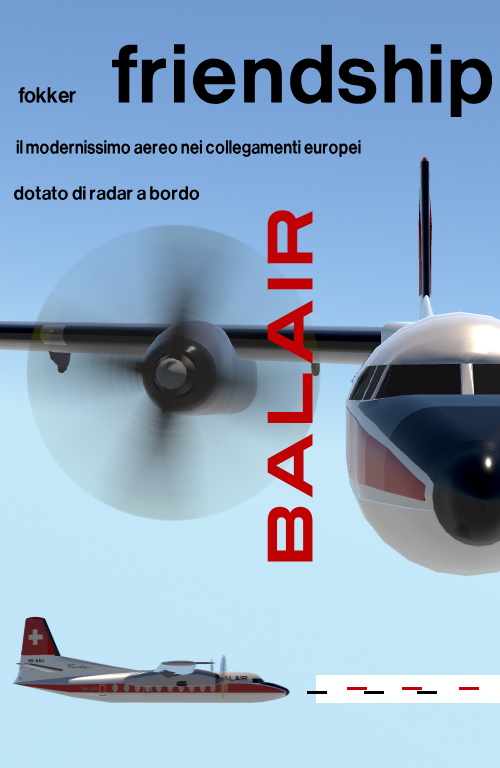
Fan Photography
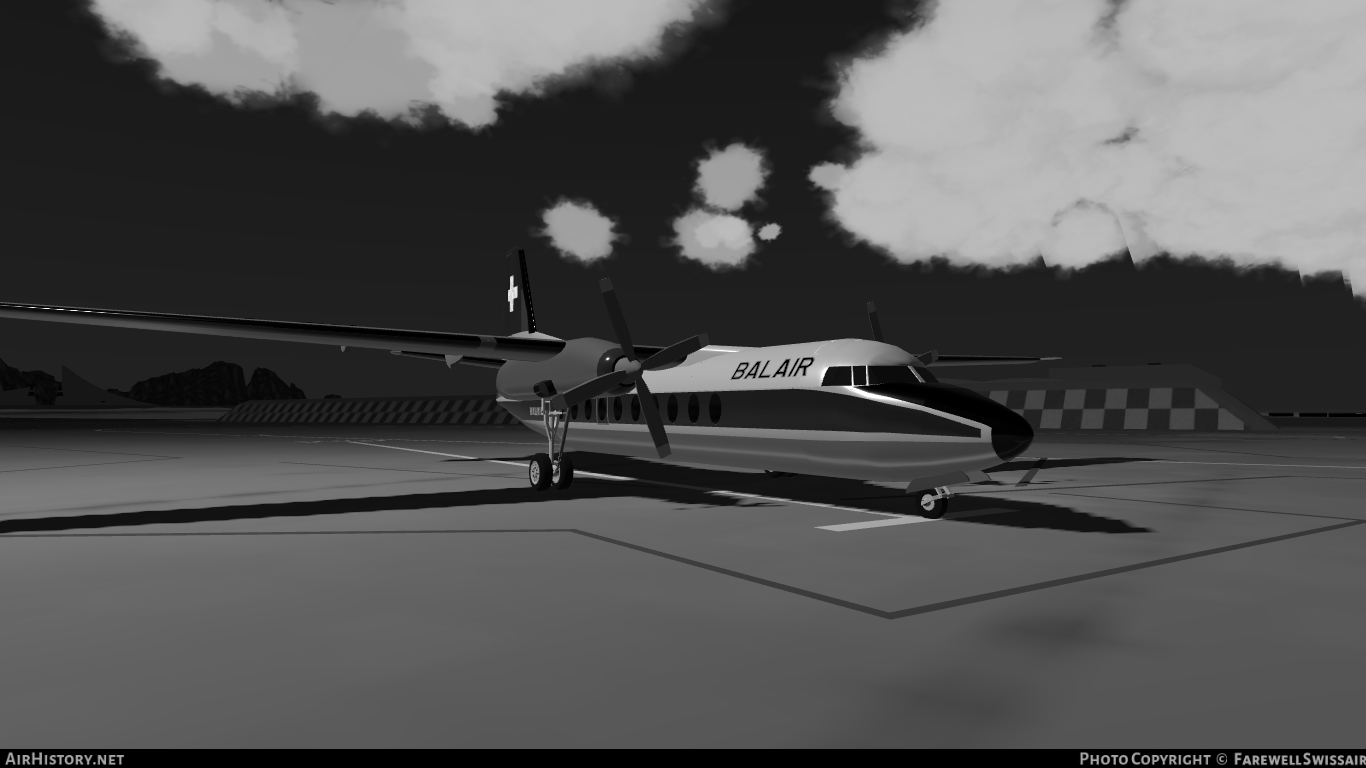
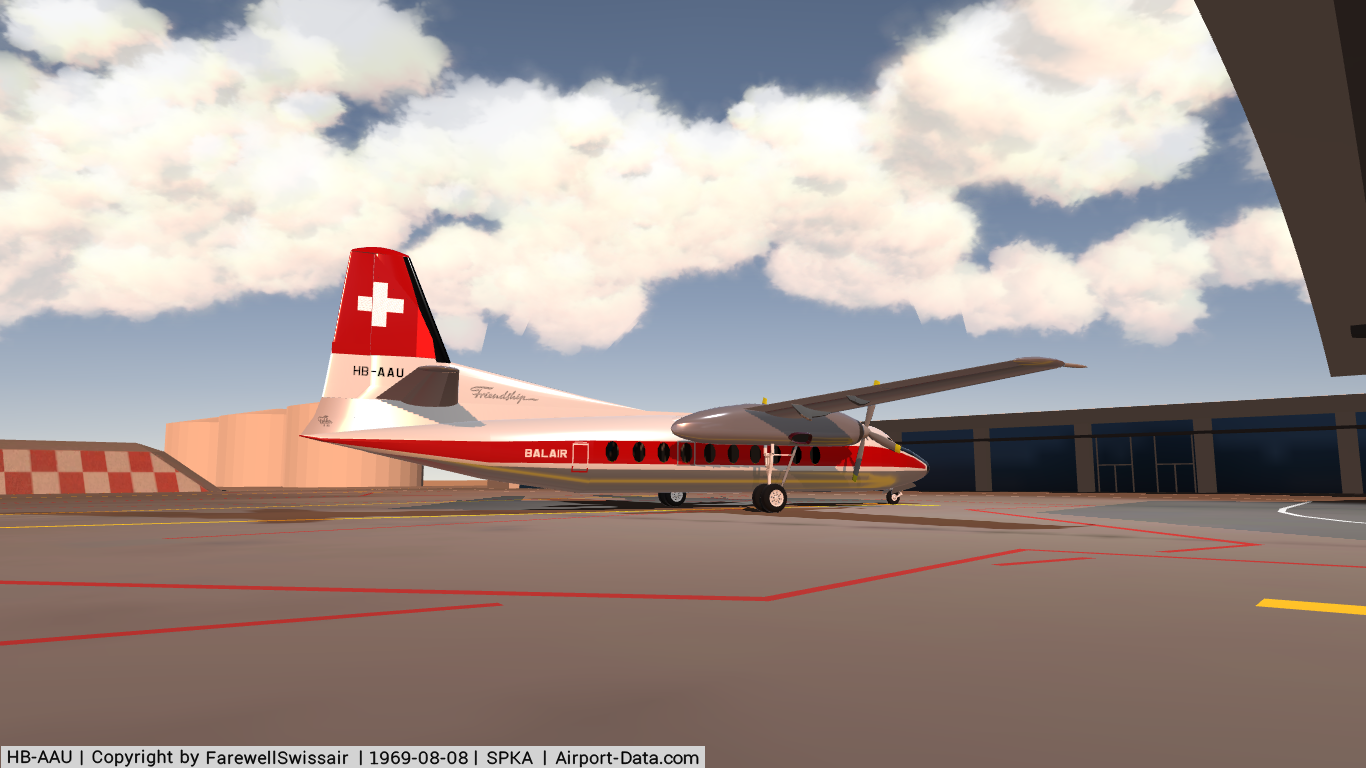
Credit:
Orginial Creator Credits:
Original aircraft from IdnManufacturerFokker F27-500 Friendship generic remake
At last I want to say:
Ich wünsche Ihnen einen wunderbaren Flug
Specifications
Spotlights
- 929 8 months ago
- FeiGe3 9 months ago
- LM0418 9 months ago
- OldDaiBilibili 9 months ago
- fyygu 9 months ago
- Jmplane678 8 months ago
General Characteristics
- Created On Windows
- Wingspan 105.5ft (32.2m)
- Length 88.4ft (26.9m)
- Height 28.7ft (8.8m)
- Empty Weight 22,643lbs (10,270kg)
- Loaded Weight 34,686lbs (15,733kg)
Performance
- Horse Power/Weight Ratio 0.172
- Wing Loading 28.6lbs/ft2 (139.4kg/m2)
- Wing Area 1,214.6ft2 (112.8m2)
- Drag Points 7032
Parts
- Number of Parts 457
- Control Surfaces 5
- Performance Cost 2,005

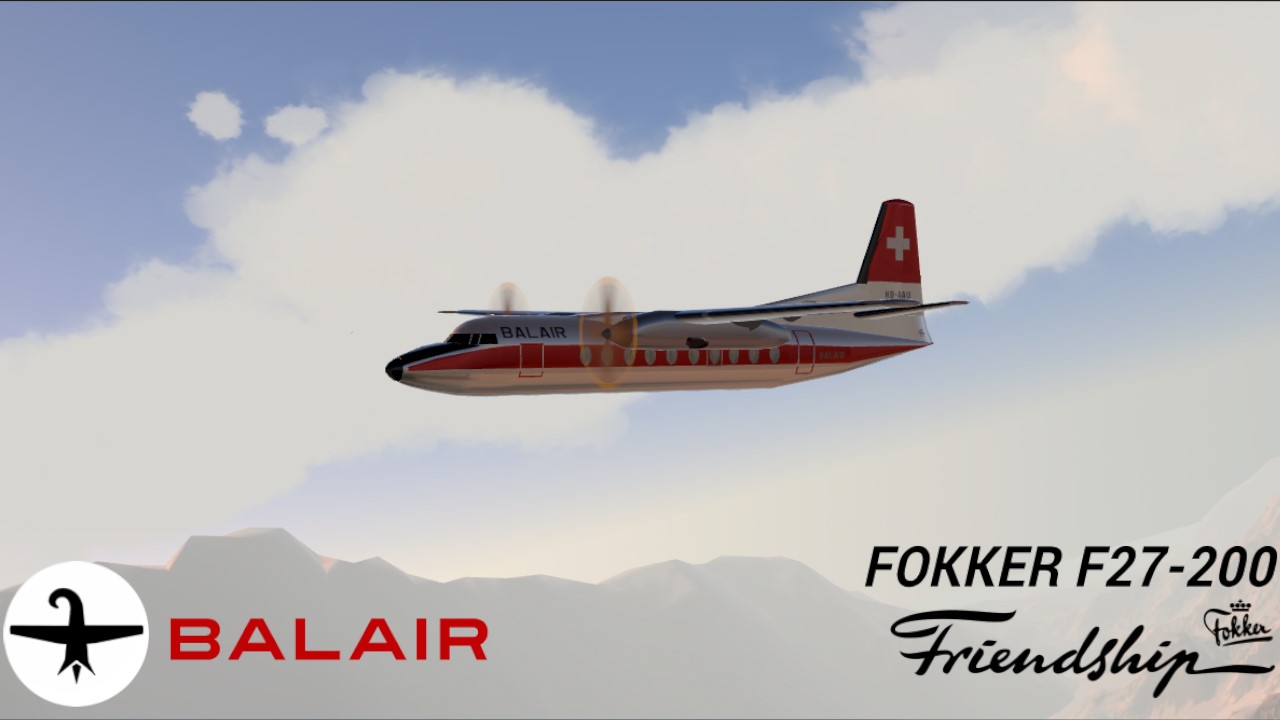
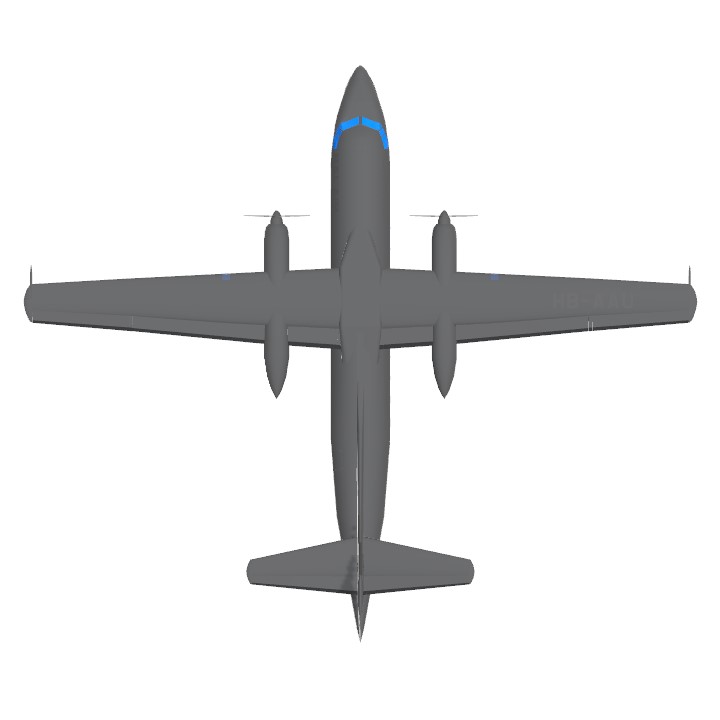
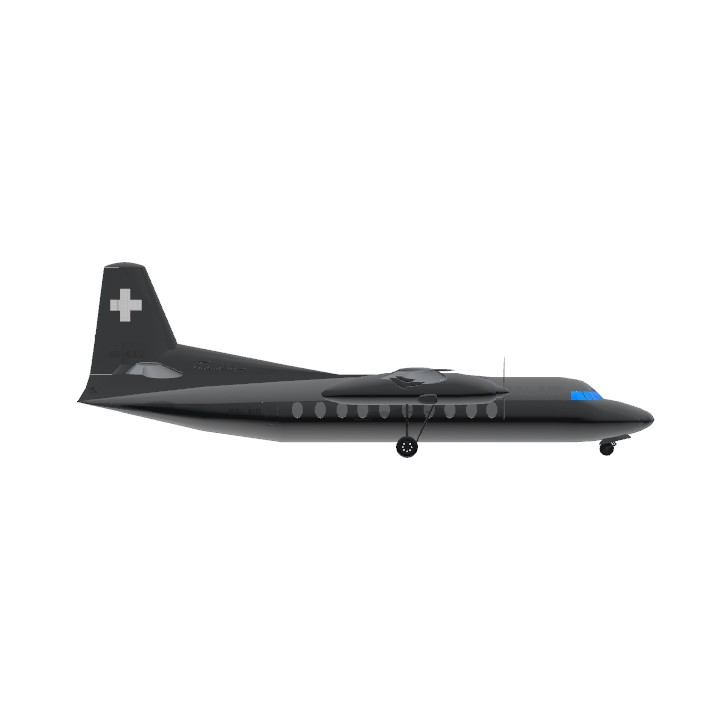
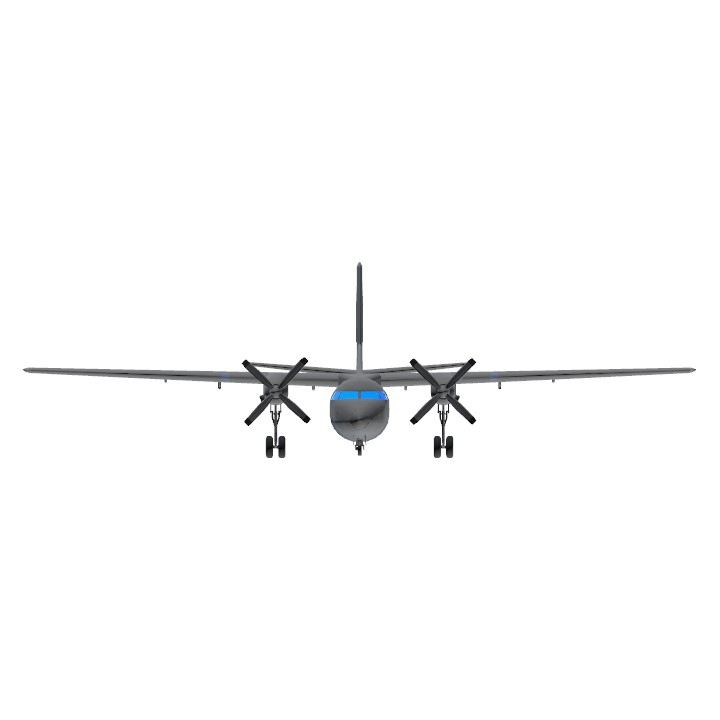
Due to some issues with the introduction of my first work, I had to delete it. I am truly sorry.
Comment Link
Nice one!
HERE B4 @THEMOUSE